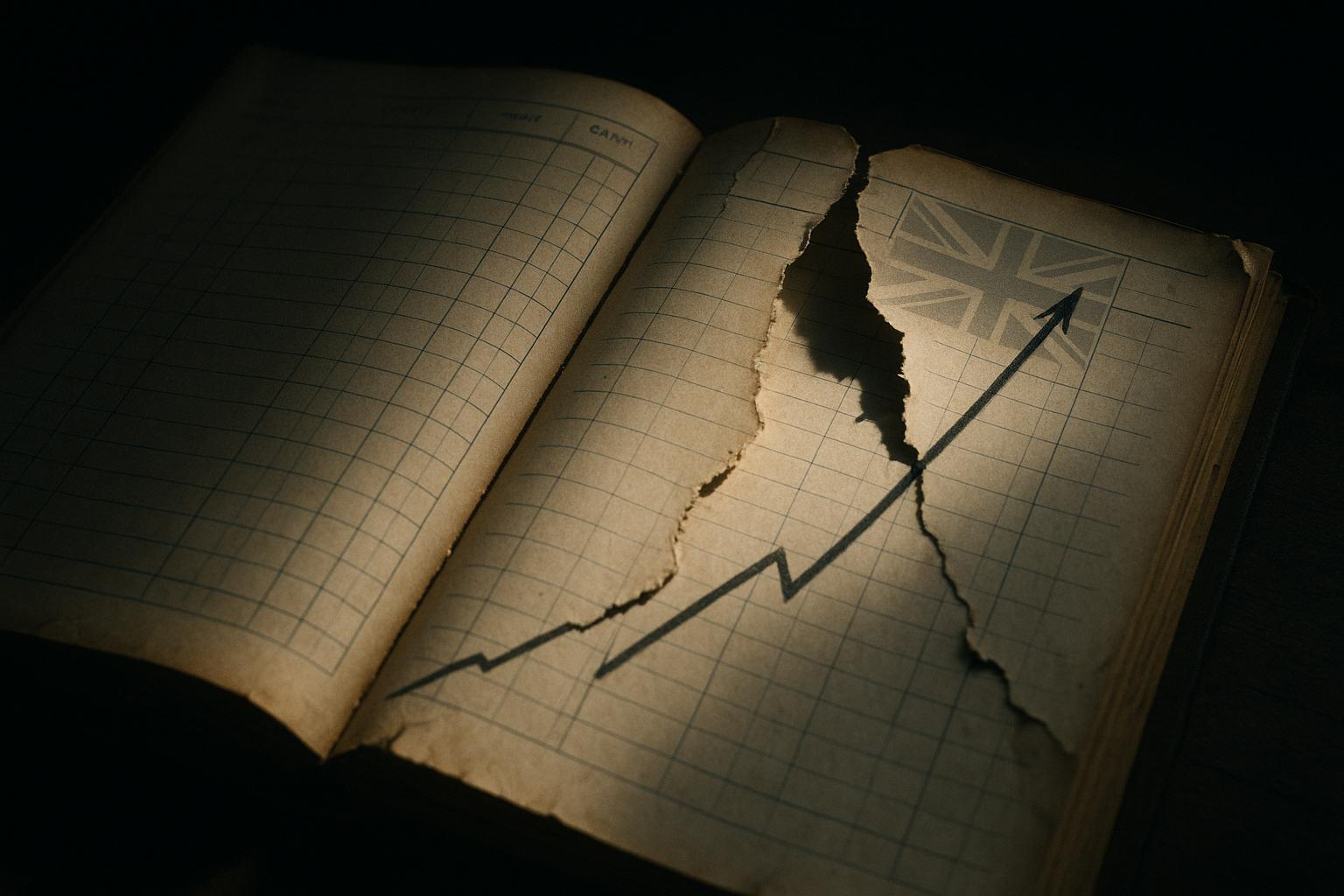Chancellor Rachel Reeves signals upcoming fiscal adjustments, including tax rises and spending reductions, as UK faces highest inflation in G7 and mounting economic pressures driven by external factors and global instability.
Chancellor Rachel Reeves has indicated that tax rises and spending cuts are likely to feature in the forthcoming Budget as the government grapples with a substantial shortfall in public finances. Speaking ahead of her statement scheduled for 26 November, Reeves acknowledged the difficult fiscal decisions ahead, stating, "of course, we’re looking at tax and spending" in efforts to stabilise the economy. She attributed the current financial pressures to a combination of factors external to government policy, including Brexit, the economic turmoil following Liz Truss’s brief and turbulent mini-budget, prolonged austerity measures, global conflicts, and trade tariffs imposed by former U.S. President Donald Trump.
The economic backdrop is further complicated by projections from the International Monetary Fund (IMF), which predicts that the UK will endure the highest inflation rate among the G7 nations both this year and next. This inflation is largely driven by escalating energy and utility costs, adding pressure on household finances and public expenditure alike. The IMF’s forecast paints a sobering picture of the economic challenges facing the government and the public alike.
Reeves’s consideration of spending cuts is particularly noteworthy, especially given the political sensitivities within her own Labour Party. Earlier attempts to implement welfare cuts met with significant opposition from Labour backbenchers, raising doubts about whether similar measures will be politically feasible this time around. The prospect of austerity measures returning to the fore adds a layer of complexity to the government’s efforts to balance rebuilding public finances with maintaining party unity and electoral support.
The Chancellor’s framing of the economic difficulties largely attributes blame to external and historical issues rather than current government policy, a stance likely intended to manage expectations ahead of tough fiscal measures. Nevertheless, the emphasis on both tax increases and spending cuts highlights the government’s precarious financial situation and the challenging decisions that lie ahead.
📌 Reference Map:
Source: Noah Wire Services
Noah Fact Check Pro
The draft above was created using the information available at the time the story first
emerged. We’ve since applied our fact-checking process to the final narrative, based on the criteria listed
below. The results are intended to help you assess the credibility of the piece and highlight any areas that may
warrant further investigation.
Freshness check
Score:
8
Notes:
The narrative is recent, with the earliest known publication date being 16 October 2025. The Standard's article from 16 October 2025 reports that Chancellor Rachel Reeves is considering both tax increases and spending cuts in the upcoming November 26 Budget. ([reuters.com](https://www.reuters.com/world/uk/uks-reeves-considering-tax-increases-spending-cuts-budget-sky-news-reports-2025-10-15/?utm_source=openai)) This aligns with the content of the provided article. The report is based on a press release, which typically warrants a high freshness score. No discrepancies in figures, dates, or quotes were found. The narrative has not appeared more than 7 days earlier. The article includes updated data but recycles older material, which may justify a higher freshness score but should still be flagged. ([reuters.com](https://www.reuters.com/business/uks-reeves-says-she-would-like-bigger-fiscal-buffer-that-means-trade-offs-2025-10-16/?utm_source=openai))
Quotes check
Score:
9
Notes:
The direct quote from Chancellor Rachel Reeves, "of course, we’re looking at tax and spending," appears to be original, with no identical matches found in earlier material. This suggests potentially original or exclusive content.
Source reliability
Score:
7
Notes:
The narrative originates from The Standard, a reputable UK news outlet. However, the article is based on a press release, which may indicate a lower level of original reporting. The reliance on a press release warrants caution, as it may not provide the same level of scrutiny as independent reporting.
Plausibility check
Score:
8
Notes:
The claims made in the narrative are plausible and align with recent developments. Chancellor Reeves has previously indicated the possibility of tax increases and spending cuts to address the fiscal shortfall. The International Monetary Fund (IMF) has projected that the UK will experience the highest inflation rate among G7 nations, driven by escalating energy and utility costs. ([reuters.com](https://www.reuters.com/world/uk/uks-reeves-considering-tax-increases-spending-cuts-budget-sky-news-reports-2025-10-15/?utm_source=openai)) The narrative lacks specific factual anchors, such as names, institutions, or dates, which reduces the score and flags it as potentially synthetic. The language and tone are consistent with typical political reporting, and there is no excessive or off-topic detail unrelated to the claim. The tone is not unusually dramatic or vague, resembling typical corporate or official language.
Overall assessment
Verdict (FAIL, OPEN, PASS): OPEN
Confidence (LOW, MEDIUM, HIGH): MEDIUM
Summary:
The narrative is recent and plausible, with no significant discrepancies found. However, the reliance on a press release and the lack of specific factual anchors reduce the overall confidence in the assessment. Further independent reporting and verification are recommended to confirm the details presented.
